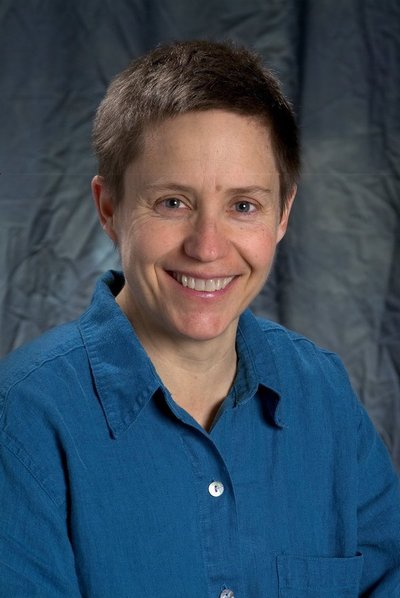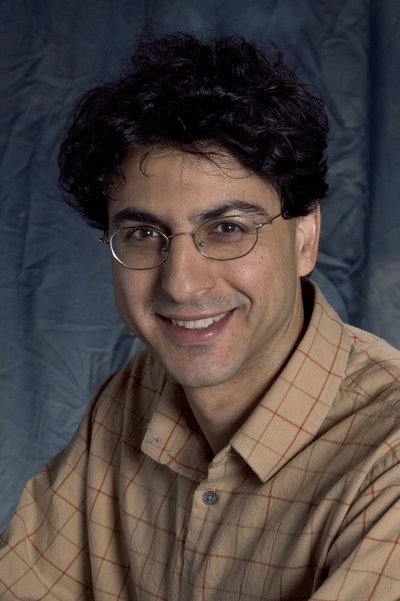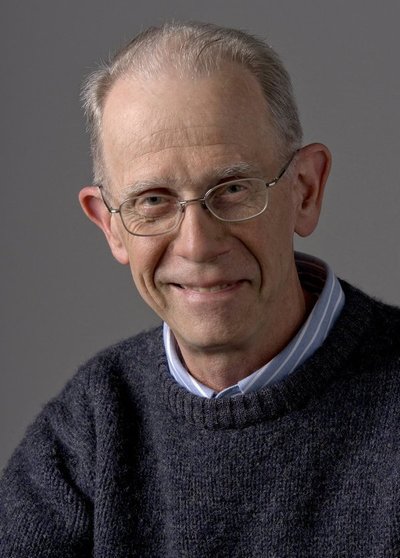May 21, 2009
Three award-winning profs provide a taste of their teaching in showcase
Nonstudents will have the opportunity to learn what’s going on in the UW’s classrooms these days during the 2009 Distinguished Teaching Awards Showcase, slated for 7 to 9 p.m. Thursday, May 28, in Mary Gates. Sponsored by Undergraduate Academic Affairs and the Alumni Association, the showcase will feature three past winners of the Distinguished Teaching Award conducting mini-classes, followed by a panel discussion with them and a few other award winning teachers.
“I had a conversation last year with Paul Rucker and Chuck Blumenfeld at the Alumni Association about how under-recognized teaching is on this campus,” said Ed Taylor, dean and vice provost of undergraduate academic affairs. “So I asked them, ‘Could we give people in the community a chance to see UW teaching by re-creating what the students experience?’ This event grew from there.”
The idea, Taylor said, isn’t for the faculty members to give a talk about their work, but to actually teach something as they would in the classroom. The three teachers who are taking him up on that challenge and their topics are:
- Laura Little, psychology, Correlation, Causation, and that Amazing Rooster!, Room 288
- Mehran Mesbahi, aeronautics & astronautics, Fly Me to the Moon: Johannes Kepler and the Science of Spacecraft Orbits, Room 284
- John Webster, English, Reading Shakespeare’s Nasty Sonnets: How Love is not Always Love When the Bard is Doing It, Room 242
Little said her topic grows out of her belief that everyone should know how to read and understand research results as presented in the media. “The way our minds work, we are drawn to causes,” she said. “We want to understand things in terms of causes, but often in behavioral science, it’s just an association. So if you read an article that says, for example, that video games cause violent behavior, you need to think about how that study was designed and carried out.”
And the rooster in the title? Well, that’s the rooster who thought he caused the sun to rise.
Mesbahi said he chose his topic because it is an exciting one that could draw the attention of an audience at an evening event. He also thinks that Kepler’s discovery of the laws of planetary motion and their implications for space travel “is just so cool and not to be missed.”
Webster cited the brevity of Shakespeare’s sonnets as part of the reason he chose them for his mini-class. “But I also have found that as fascinated as people are by the sonnets, they often still don’t understand, really, why Shakespeare is often called England’s greatest love poet,” he added. “‘Love’ may only be a four-letter word, but the emotions Shakespeare finds in it require more letters than the alphabet owns.”
Since the teachers will have only 20 minutes each, their methods will be fairly straightforward. Mesbahi said he might break listeners into groups to brainstorm a topic or scenario, and Webster said he would likely start with a “perfect” quiz — a quiz no one could possibly fail. “It’s a playful way of focusing a whole group on what we already know — in my experience a very good place for reflection to begin,” he said. Little said she would likely stick to a basic lecture with visual aids.
All three acknowledged that the event represents a challenge. “I’m scared to death,” Little admitted. “I know what my students are like, I know what to expect. Here, I don’t know, so it’s challenging. But I’m excited about doing it.” Mesbahi echoed her feelings.
Webster said he was really looking forward to the experience. “We often think of ‘teaching’ as something that happens only in classrooms, but some of my best experiences as a teacher have been with groups in the community. These tend to be single events, but I’ve never left one without thinking that the event has given me as much as I’ve given it. I’ve met wonderful people, and they’ve always matched whatever I’ve been able to bring to the occasion with their own enthusiasm and curiosity and wisdom.”
After the mini-classes, Little, Mesbahi and Webster will be joined by two other Distinguished Teaching Award winners — Catrin Pittack, biological structure; and Shanga Parker, drama — for a panel discussion in Room 389 moderated by Lisa Coutu, communication, another Distinguished Teaching Award winner.
“What I’m hoping to do is to ask the panel questions, such as ‘Who are our students now?’ ‘How have they changed over the years?'” Coutu said. “Then I’m going to ask them what strategies they use in their teaching and why. I want our audience to hear them reflect on their teaching process.”
After that, Coutu said, she’ll open the floor for questions from the audience.
Everyone involved with the showcase talked about their enthusiasm for teaching and their desire that the audience get a taste of that enthusiasm.
“I hope people who come will have some fun. I hope they’ll be impressed and learn something,” Taylor said. “I hope they’ll begin to understand the ways in which the University can excel. We can do research that makes a difference, but we can also excel in the classroom.”
The teaching showcase is free but registration is requested. Click here to learn more.



